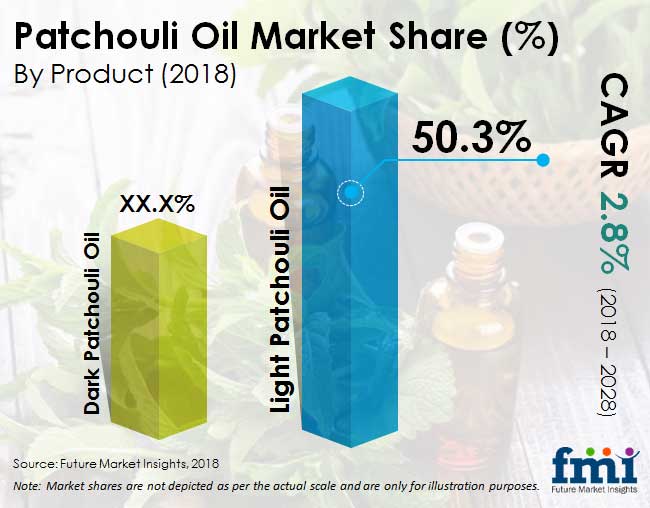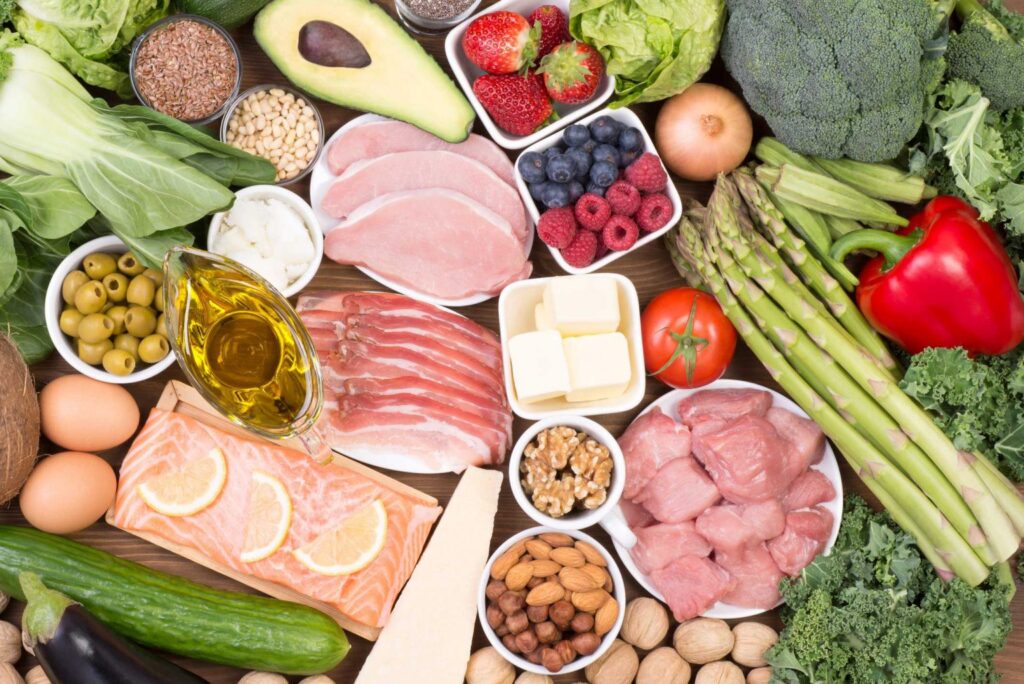With increased adoption in various end-use industries including cosmetics and personal care—specifically perfumery, aromatherapy, food processing, and pharmaceutical, demand for patchouli oil is projected to grow. However, the patchouli oil demand is anticipated to remain elastic as farmers in the Sumatra Region of Indonesia—largest producer of patchouli oil, are making a shift towards other crops owing to price volatility, thereby impacting the overall development of global patchouli market. However, to reverse such market dynamics associated with patchouli oil, global manufacturers are making notable investment to provide sustainable livelihood to Indonesian farmers of patchouli plants. Recently, Givaudan, in its initiative to develop a sustainable patchouli supply chain in Indonesia, is likely to set up patchouli distillation units in the region, along with training patchouli farmers and their families on efficient distillation and agricultural practices.
To Get the Sample Copy of Report visit @ https://www.futuremarketinsights.com/reports/sample/rep-gb-7298
Joint partnerships between manufactures and farmers in anticipated to translate into good quality patchouli, in the coming years. According to a new research released by Future Market Insights (FMI), the market for patchouli oils in MEA and developing economies of APAC will record comparatively higher growth than in developed markets.
FMI forecasts a steady revenue growth the global patchouli oils market at a sluggish rate of 2.8% during 2018–2028, with the market valuation reaching US$ 67.5 Million by the end of 2019. In terms of volume, 1,352.2 metric tons of patchouli oil is projected to be shipped by 2019.

Patchouli Oil Market Structure Analysis
Produced in region pockets of Indonesia, India, China, Malaysia, and Taiwan, patchouli oil is mostly dominated by regional players including PT Mitra Ayu Adi Pratama, PT Aroma Essence Prima, Nusaroma PT, and Eastern Agencies Aromatics Pvt. Ltd, accounting for nearly 45-60 percent market share. However, the multinational players such as Ultra International B.V., Givaudan SA, Takasago International Co., Firmenich SA, and PT Indesso Aroma, having a comparatively larger share in the patchouli oil market than the regional players, hold nearly 20-35 percent market share. Regional players rely on joint partnerships with multinational companies to reach a larger market.
FMI anticipates potential investment opportunities for new players, considering increasing demand for essential oils across several end-use industries, specifically the global fragrance and cosmetics industry in MEA. In addition,
- Latin America and Eastern Europe are projected to represent notably low demand for patchouli oil, considering the dormant cosmetics and essential oils market in the regions.
- Demand for patchouli oil in MEA is likely to surpass demand in North America and Western Europe, owing to growing demand for clean label and organic products,
- Owing to robust distribution networks, demand for patchouli oil in North America and Western Europe is expected to remain promising.
Consumers Demand ‘Clean Labels’ and ‘Purity Certifications’
Paradigm shift towards more organic and natural ingredients in the goods coupled with good manufacturing practices, is estimated to increase the demand for natural and organic patchouli oils in the global market. Moreover, as demand grows for minimally processed, plant derived essential oils such as the patchouli oil offers all-natural alternatives to synthetic food additives and preservatives as effective antimicrobial agents. Manufacturers, on the other hand, could experiment with the average pricing of good containing naturally-obtained patchouli oil. Looking ahead, natural and organic skin care products will be also be boosted by demands for clean label products.
Increasing demand for ‘eco-perfumes’ that no longer have animal notes, are also contributing to the sales of patchouli oil in the global market. Manufacturers are increasingly replacing synthetic perfumes with natural ingredients in perfumes including the patchouli oil, as a fixative. Patchouli oil has found widespread adoption in the perfumery industry, owing to its ability to slow the evaporation process of other volatile oils. Moreover, consumers are also demanding organic certifications natural and pure oil including iFEAT, USDA Organic, and FSSC 22000, translating into higher sales of products with such certifications. FMI anticipated higher demand for organic patchouli oil variants in the coming years, representing an annual growth rate of around 4.4% considering increased efforts by manufacturers to cultivate their own organic patchouli plants and further educate farmers.
Ask an Analyst @ https://www.futuremarketinsights.com/ask-question/rep-gb-7298
Key Insights Drawn from Global Patchouli Oil Market Report
- North America is anticipated to hold around 27.5% share in terms of value in the global patchouli market in 2018, considering a well-established supply chain in the region.
- APAC patchouli market is projected to witness rapid growth, and register a CAGR of 3.4% over the forecast period of 2018-2018, owing to the increasing demand for patchouli oil in the growing markets of Asia.
- In terms of product type, dark patchouli oil, will find increased preference aromatherapy, pharmaceuticals, and insecticides.
Global Patchouli Oil Market: Segmentation
Analysis by Product Type
- Light Patchouli Oil
- Dark Patchouli Oil
Analysis by Nature
- Organic
- Conventional
Analysis by Extraction Process
- Steam Distillation
- Hydro Distillation
Analysis by End Use
- Cosmetics and Personal Care
- Hair Care
- Skin Care
- Perfumes and Fragrances
- Aromatherapy
- Food and Beverages
- Pharmaceuticals
- Others (Detergents, Household Cleaning, Insect Repellents)
Analysis by Function
- Anti-inflammatory
- Antidepressant
- Flavoring Agent
- Mood Harmonizer
- Deodorizer
- Others
Analysis by Distribution Channel
- Direct Sales
- Indirect Sales
- Specialty Stores
- Drug Stores
- e-Retail

